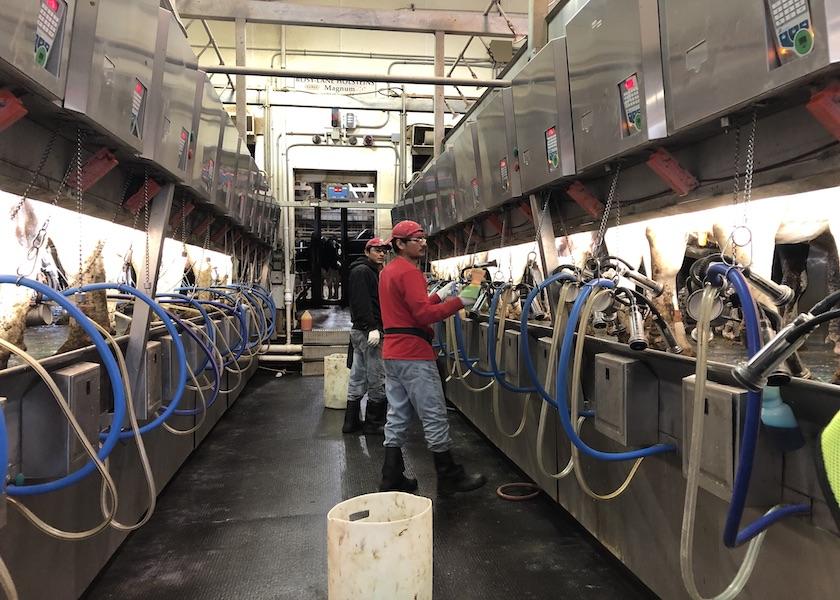Dairy Farm Workers Not Necessarily a Fan of Overtime

For most dairy operations, labor is the second highest expense behind feed. With rising minimum wage and other industries competing for employees, labor prices have continued to creep higher. While we want to blame overtime rules scattered across the country, that isn’t necessarily the only culprit.
A new study concluded California farmworkers earned less money as overtime reform efforts were phased in. Relying on worker-reported federal data, the research found that farmworkers in the Golden State worked 15,000 to 45,000 fewer hours in 2019 and 2020 while making $6 million to $9 million less per week than they would have if the farming industry had continued to enjoy an overtime exemption.
California began phasing in overtime for agricultural workers in 2019. In 2022, the Golden State began requiring that any ag employees working more than 8 hours a day or more than 40 hours a week receive overtime compensation.
“Our minimum wage is $15, and we've got employees that are saying, ‘Hey, I've got to make more money,’” California dairy producer, Melvin Medeiros in Layton shared with Dairy Herd Management in December 2022.
The California dairy producer says the quality of labor is tough and he doesn’t have a magic wand to fix it.
“I do know when legislation gets involved, it turns it into a mess. We're in that mess now and trying to figure it out and how do we invest in this farm to make it more efficient and cut back on labor,” he asks.
"Growers just don't have the ability to pass on the overtime costs, so they have to find a way to get the job done with fewer hours available," President Daniel Hartwig at the California Fresh Fruit Association, says. "Unfortunately, that means less hours for employees to work each week."
Travel east and you’ll find New York along with a handful of other states has joined California’s overtime law efforts, phasing in a 40-hour overtime threshold. Starting in 2024, the base will drop four hours per week every two years. New York dairy farmer Tyler Reynolds of Reyncrest Farms says managing his state’s overtime law is something he is forced to figure out.
“So far, we haven't really changed anything on [scheduling] because our guys really want 65 to 70 hours a week,” he says.
“I truly believe if I tie hours back, I'm going to lose some of my best guys because they'll most likely go to other states that allow for as many hours as they can get,” he adds.
Reynolds shares that over the last couple of years, his labor costs on his farm have risen by 25%-30%.
“I don't like to think of any of these guys as minimum wage employees,” he says. “Our minimum wage is $13.20, but we don't take anything off for housing. So, all of a sudden, these guys are $15 to $16 employees.”
Back in California, dairy producer Ryan Junio of Four J Jerseys in Pixley says they have always taken the stance to pay overtime on staff as opposed to bringing more employees on to payroll to cut overtime from the others.
“Carrying extra staff to avoid overtime creates more exposure and liability on several fronts,” he says. “So, we just assume pay our employees that have been with us the overtime.”







